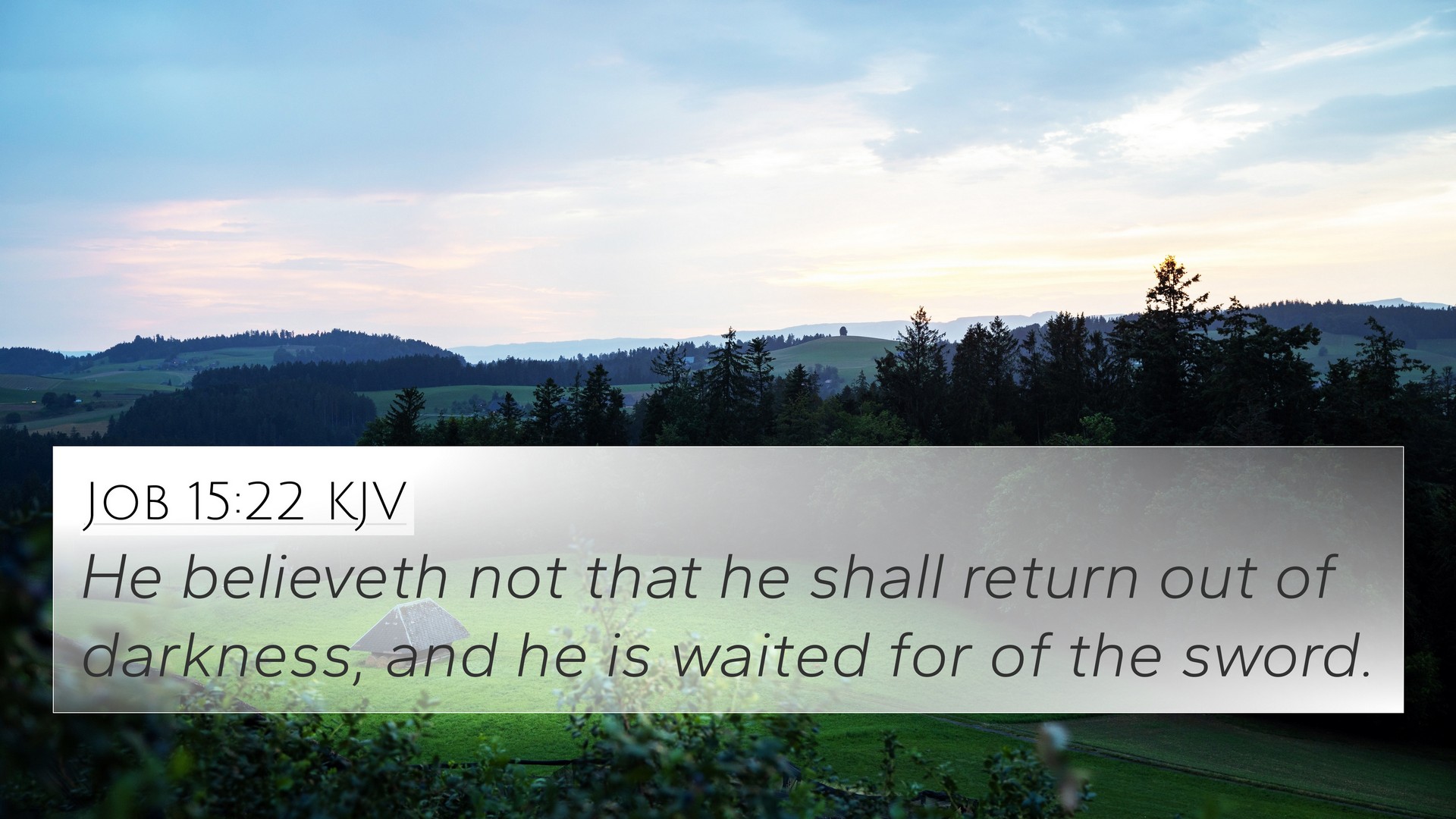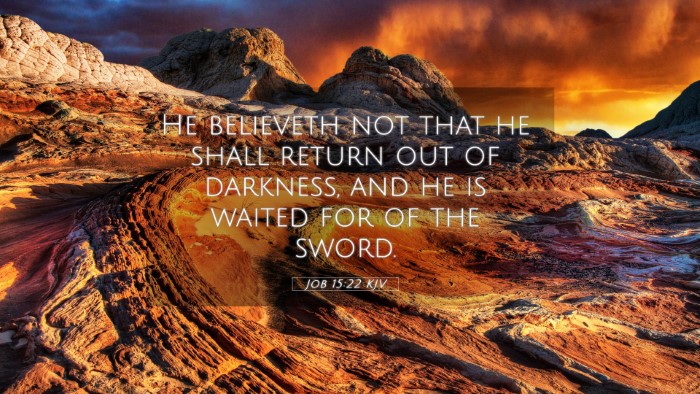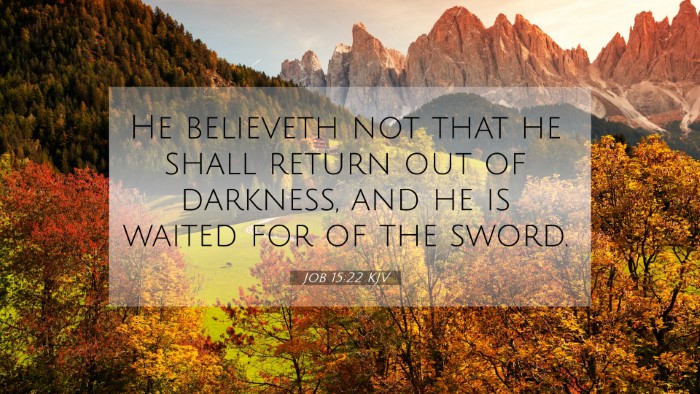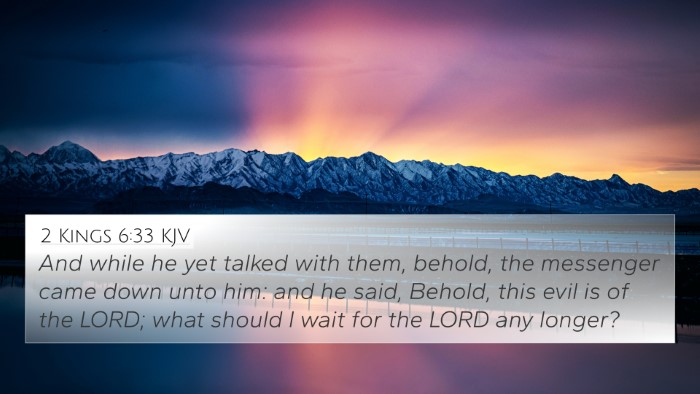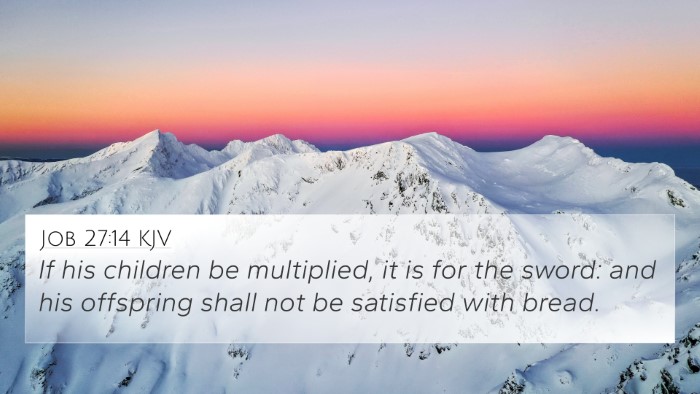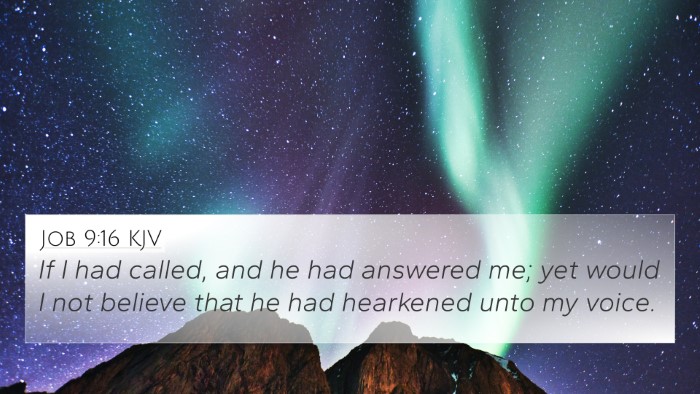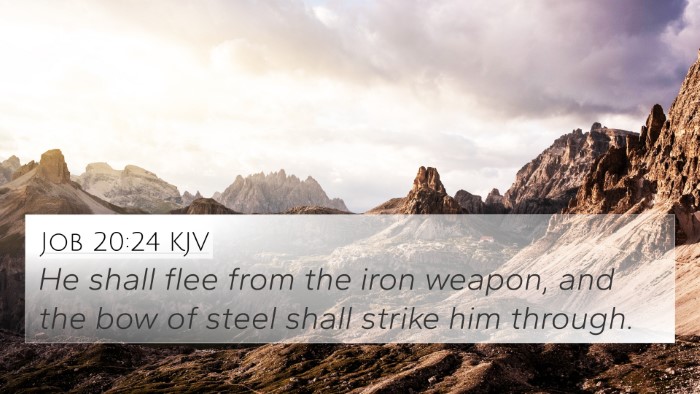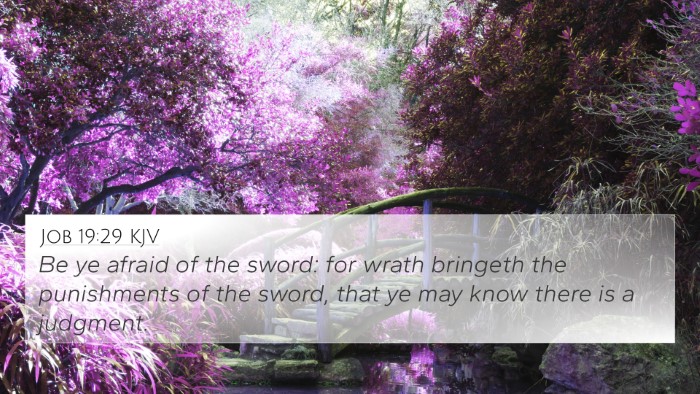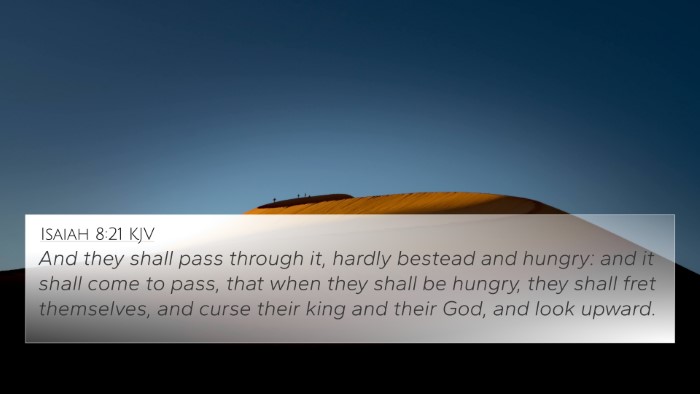Understanding Job 15:22
Job 15:22 states, "He believes not that he shall return out of darkness, and he is waited for of the sword." This verse reflects the despair and hopelessness faced by Job, particularly in the context of his suffering and the accusations made against him by his friends.
Overview of Job 15:22
The verse encapsulates the profound fear and anxiety that arise from a perceived separation from God. This despair is mirrored in the broader narrative of Job, where the theme of suffering prompts deep exploration of divine justice and human response.
Commentary Insights
- Matthew Henry: Henry interprets this verse as a reflection of the misguided perspective of Job's friend Eliphaz. He asserts that the unrighteous man believes he is beyond hope, consumed by darkness, with only destruction awaiting him. It highlights how the friends' views often lack empathy and understanding of true suffering.
- Albert Barnes: Barnes emphasizes the idea that the individual described in this verse has a false sense of security. He is unaware of the impending judgment that awaits the wicked. This serves as a warning that the denial of accountability leads to severe consequences.
- Adam Clarke: Clarke notes that the darkness symbolizes despair and spiritual blindness. He comments on the psychological state of those who live in wickedness, cut off from the hope of redemption. Their anticipation of peril reveals their understanding of divine justice.
Thematic Connections
This verse opens up numerous avenues for cross-referencing Biblical texts that resonate with themes of despair, judgment, and the human condition:
- Psalms 22:12-14 - Expresses feelings of abandonment, similar to Job's own sentiments.
- Ecclesiastes 12:14 - Alters focus to Divine judgment, connecting to Job's concerns about impending doom.
- Proverbs 11:21 - Discusses the fate of the wicked, linking to the consequences outlined in Job 15:22.
- Isaiah 57:21 - Highlights the separation between those who know God and those who do not, much like Job's despair.
- Matthew 5:3 - "Blessed are the poor in spirit," providing a counterpoint reflecting hope amidst despair.
- Romans 3:23 - Themes of sin and universality resonate with Job's reflections on righteousness and guilt.
- 2 Corinthians 5:10 - The inevitability of judgment, amplifying the theme of facing consequences.
- Hebrews 9:27 - Reinforces the certainty of judgment for all, akin to the fate described in Job.
Applications in Biblical Study
For those studying the Bible, utilizing a Bible cross-reference system can greatly enhance understanding. Here are some tools and methods:
- Utilize a Bible concordance to identify related themes and verses easily.
- Engage in cross-reference Bible studies that allow for comparative analysis of themes like despair and hope.
- Explore cross-referenced themes in the Bible to connect Job’s narrative with the teachings of Christ and the Apostles.
- Consult a cross-reference Bible study guide to navigate through similar passages and enhance comprehension.
- Leverage comprehensive Bible reference resources to explore the dynamics of inter-Biblical dialogue.
Conclusion
The exploration of Job 15:22 not only invites deep personal reflection but also encourages a broader comparative Bible verse analysis. By linking various scriptures, we can uncover profound truths about human suffering, divine justice, and the potential for redemption. Understanding each verse in its context with interconnected messages fosters a more holistic view of the scripture as a divine narrative.
